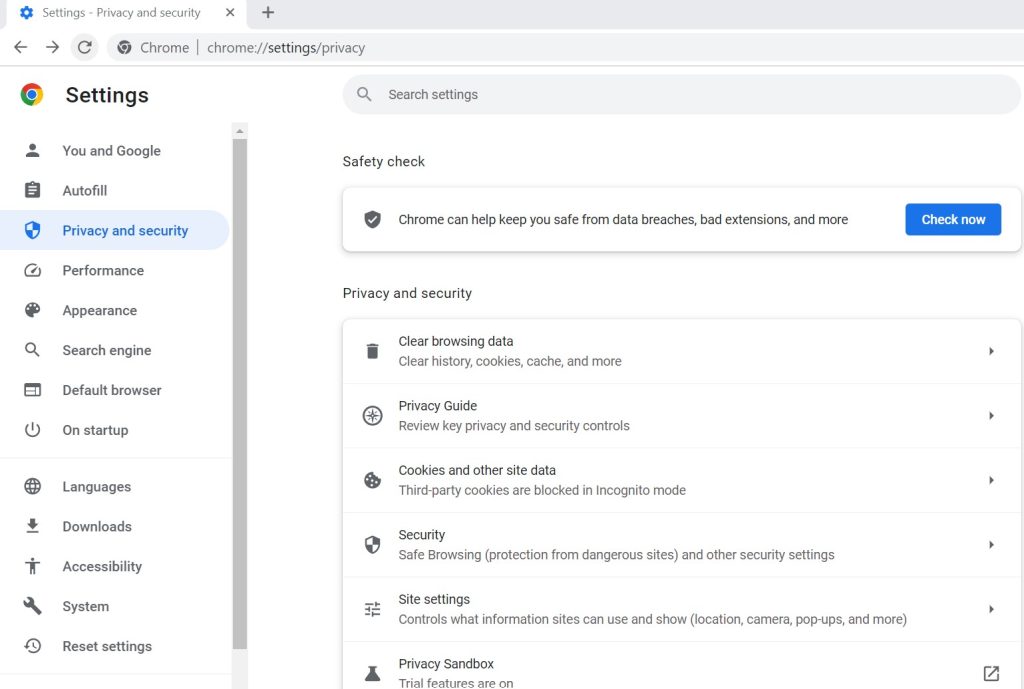Google Chrome has today provided an important update on the Privacy Sandbox proposals through a blog post and updates on the Privacy Sandbox for the Web page – which dropped overnight for Australians.
Background
Since August 2019 Google have been collaboratively developing a set of proposals to improve user privacy within both web-based environments (Chrome) and in-app environments (Android), without sacrificing the key functionalities that enable relevant advertising.
In order to support this a set of proposals called ‘The Privacy Sandbox’ have been in public development, which includes the collaborative building of new digital advertising features and APIs, to replace third-party cookies with alternatives that better protect consumer privacy whilst still preserving access to free ad-supported content online.
Recent news & updates
A series of key updates have now been provided, which effectively act as a timeline for industry to follow and prepare for with regards to the deprecation of third-party cookies in Chrome.
image source: privacysandbox.com
It’s worth also noting that these have been developed in consultation with the UK’s Competition and Markets Authority (CMA) and align to some previously released commitments and public timelines. For more on this please see a recent update from IAB UK available here
Chrome 115 (July 2023)
The proposed release date for the Privacy Sandbox relevance and measurement APIs will be within the stable version of Chrome 115 (currently scheduled for July 2023). From v115 onwards, sites will be able to fully test the Topics API and other key features developed to enable targeting and cross-site tracking.
Worth also noting that Privacy Sandbox should automatically also appear in other Chromium-based browsers, such as Microsoft Edge.
Which APIs will be made available?
Topics: Generate signals for interest-based advertising without third-party cookies or other user identifiers that track individuals across sites.
Protected Audience: Previously named FLEDGE this re-marketing API selects ads to serve re-targeting and custom audience use cases, designed to mitigate third-party tracking across sites.
Attribution Reporting: Correlate ad clicks or ad views with conversions so as to help generate event-level or summary reports.
Private Aggregation: Generate aggregate data reports using data from Protected Audience and cross-site data from Shared Storage.
Shared Storage: Allow unlimited, cross-site storage write access with privacy-preserving read access.
Fenced Frames: Securely embed content onto a page without sharing cross-site data.
1% third-party cookie deprecation (Q1 2024)
In Q1 2024 Chrome will deprecate third-party cookies for up to 1% of browsers globally. There is no opt-in for this mode, and this will be the first real test. If this live testing process goes smoothly enough, then that percentage will very likely be gradually increased over time and we should expect further updates on these results throughout the process.
Alongside shipping these web-based APIs, Chrome has a number of existing privacy and security user controls in browser settings relating to Ad privacy, which enables consumers to configure these types of features. These consumer controls will also be updated and tested with a small percentage of Chrome Stable users as the new features gradually roll out.

Next steps & our recommendations
Whilst the intentions for prioritising consumer privacy are obviously critical, the impact on both publishers and marketers should not be underestimated in terms of targeting, measurement and attribution across the open web. We strongly recommend that our members fully engage in the process of reviewing all the initial design proposals, participate in any available testing processes (whether directly or via key tech partners) and share feedback on the dedicated developer sites.
- If you are a Google client, ensure your specialist staff and/or tech partners are up-to-speed and engaging with the related origin trials – so as to be able to proactively test and competently understand these proposals before the changes come into play.
- We strongly recommend regularly keeping an eye on Google’s dedicated online Privacy Sandbox timeline for the web – which provides the exact timings of any future updates and origin trials for all the proposals.
- Also align your planning for your in-app activities – through the Privacy Sandbox proposals for Android whilst also ensuring that you are resourcing adequately to understand and test the recent updates to Apple’s SKAdNetwork API, (now on v4.0) for measurement & attribution within iOS and iPadOS.
- Most importantly, review the timelines and use the available time wisely. Please do not become complacent and reliant upon nothing changing in terms of operational obligations in the short term.
- Engage with all of the future-proof approaches that are continuously emerging for both publishers and marketers through the recent pan-industry collaborative efforts such as the Data Collaboration Explainer, our 1st Party Data Handbook, our Contextual Targeting Handbook and Seller Defined Audiences Explainer.
Useful links for further reading
Google Extends Privacy Sandbox Proposals To Android
Chrome Delays Deprecation Of 3rd-Party Cookies Until 2024
The next stages of Privacy Sandbox (from privacysandbox.com)
Update from CMA & Google on Privacy Sandbox (from IAB UK)
Privacy Sandbox Developer Support GitHub repository

